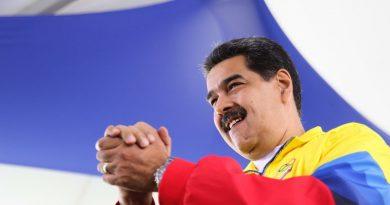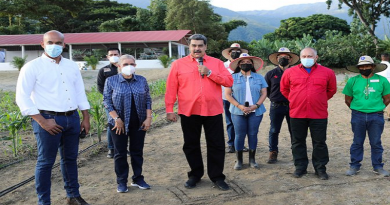
The plenary session of the National Assembly approved this Thursday in a second discussion the Law of Partial Reform of the Law of Indigenous Languages, an instrument that was immediately sent to the National Executive for publication.
The Law, approved in extraordinary session, aims to regulate, promote and strengthen the use, revitalization, preservation, defense and promotion of indigenous languages, based on the original right of these peoples to use their languages as a means of communication and cultural expression.
The president of the national Parliament, Jorge Rodríguez, congratulated the native peoples for the approval of the legal instrument, and stressed that the document preserves the being and the culture of the indigenous Venezuelans.
The reform of the law covers eight aspects that affect the competences of the National Institute of Indigenous Languages, the teaching of languages in children and adolescents, the definition of linguistic niches, the responsibility and functioning of the State in relation to these, and the acknowledgment of the leading participation of the elderly in its functioning.
It also foresees for the National Institute of Indigenous Languages to designate the official indigenous interpreters, translators and translators, in conjunction with indigenous organizations and original authorities, to guarantee communication in official acts, in administrative, judicial and other acts of a public or private nature in which indigenous people participate.
Deferred second discussion of the Intangible Cultural Heritage Law:
At the closure of the extraordinary session this Thursday, the deputies of the National Assembly decided to postpone the second discussion of the Bill for the Safeguarding of the Intangible Cultural Heritage, at the request of the president of the Permanent Commission for Culture and Recreation of the National Assembly, Deputy Earle Herrera, an instrument aimed at promoting the feeling of cultural identity and responsibility as Venezuelans.
Herrera previously stated that the purpose of the law is based on the Constitution of the Bolivarian Republic of Venezuela, including international treaties and conventions, recognizing the cultural sovereignty of Venezuela, the freedom of individual and collective creation, as well as respect for all cultural manifestations.
He reiterated that the fundamental basis of this legal instrument is the Law Approving the Unesco Convention for the Safeguarding of Intangible Cultural Heritage, of which the Bolivarian Republic of Venezuela has been a State party since 2006.
After reading some articles of this legal instrument, they proceeded to request their deferral, a requirement that had the support of the majority of the parliamentary quorum.
It is important to highlight that intangible cultural heritage is an important factor in maintaining cultural diversity in the face of increasing globalization. Understanding the intangible cultural heritage of different communities contributes to dialogue between cultures and promotes respect for other ways of life.

